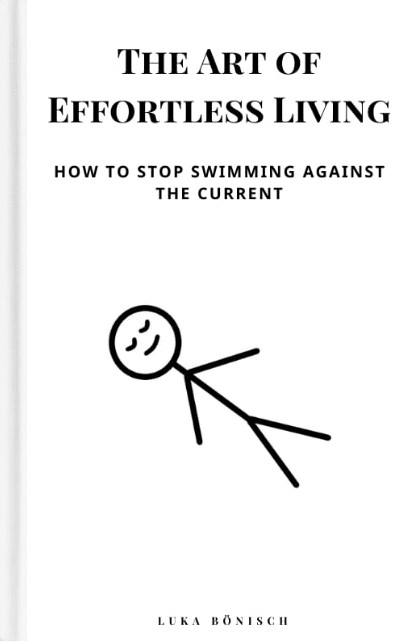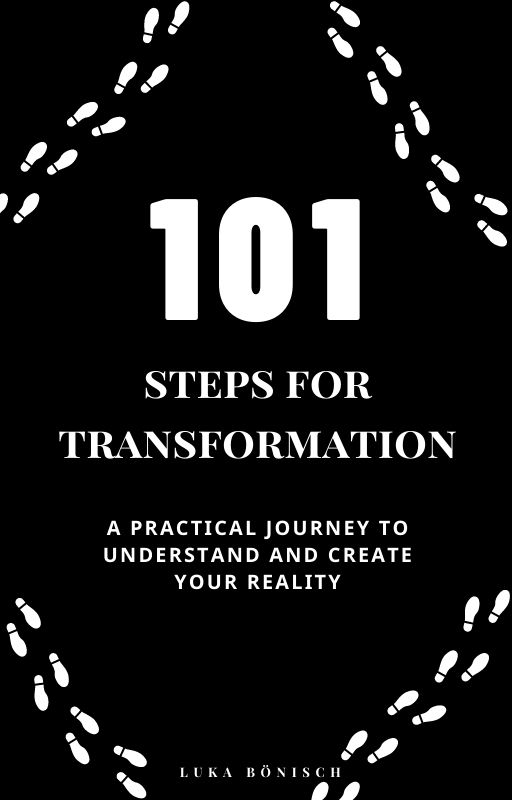
When we talk about anything, we talk about experience. Any word we use isn’t the thing in itself but only a proxy for a direct experience. This should be obvious but it’s all too easily forgotten. Why is that?
Because language is just so hypnotizing. It’s always right there, in your face. There’s hardly room for any gaps.
And the thoughts in your mind are convincing. They seem to represent your interests. They claim to be about you. They appear to accurately reflect the world out there.
The conceptual worlds we build grab our attention, our identity, our sense of meaning and purpose and belonging. They allow us to create the illusion of a shared reality we all inhabit.
But the only thing that claims that thoughts are an accurate representation of reality is more thoughts. It’s thoughts about thoughts about thoughts, forever pointing back at each other, forever avoiding responsibility.
You might think that this isn’t that much of a big deal, that everyone knows the thought ‘watermelon’ isn’t the actual watermelon, that words are just sounds meaning what we want them to mean.
But it’s way more deceiving than that.
Words have most of us bamboozled to a degree that could be described as nearly absolute.
Take stock of your beliefs, your preferences, your ideas, your allegiances, and you’ll begin to see that everything you know about yourself and the world is an endlessly complex web of vocabulary strung together by forces you couldn’t point at if you tried.
Words aren’t merely a way for us to communicate about what we experience; they are tools of manipulation and weapons of destruction. And you can’t avoid wielding them. Wherever you look, you’ll find words taking a stake in your experience, claiming your inner landscape, eager to colonize everything, allowing nothing to remain non-conceptual.
Don’t get me wrong. I love words. I’m all for using them with precision. I’m not anti-words but pro-awareness-of-words.
And of course, it’s not all bad. Words are creative, too. They’re a source of joy and inspiration and laughter, but the ability of words to do that is what’s leading to a whole lot of mess.
Look at the world that’s portrayed to us through screens. Look at the discussions, debates, fights people are having. Each side is arguing for its delusions.
Words are the weapon of choice because of their powerful shapeshifting ability. A word can explain, entice, convince, hurt, soothe, uplift. The same word can usher in peace, and it can usher in war. Words can lead to countless atrocities. Words.
See this and you’ll wonder if you see people using words or words using people. Suddenly it’s no longer humans bickering on the world stage; it’s concepts versus concepts; words versus words. What we see is a set of proxies and the proxies argue with each other. The human is just the instrument the proxy uses to try to impose its superiority.
We are so tangled up in our conceptual worlds, at some point we stop living for our lived experience but for those conceptual worlds. We live through and for and as concepts. The words “the map is not the territory” become another bar of the prison cell instead of the key to the door.
Then we use these conceptual worlds to hurt ourselves. How do we do it? By throwing words/concepts/labels at our reflection. I’m this and not that; I’m too much of something and too little of the other thing.
But we don’t see that this is what we’re doing because all we’re seeing are words/concepts/labels.
We care more about how our lives look on paper than how they feel in our direct experience. We’re more concerned with the words themselves than what they point at.
Here a question: Do you spend more time believing the narration your mind is spinning about life than living it directly?
All too often you can see this in religious folks. They care more about the concept of religion than the religious experience. They become loyal to the labels, not the lived experience. Ironically, the core of religion is seeing before/behind/beyond the labels, and noticing the truth of experience directly.
You might think those people are just brainwashed fools, but don’t be fooled. This isn’t reserved for any one group of people (scientists aren’t exempt either.)
Remember when you became defensive because someone said a word to or about you. What have you become defensive about? And on whose behalf? A label. A word.
Yes, words can hurt. But why should they?
They only hurt because we elevated them to something they aren’t. We elevated them to truth.
But I’m not saying they shouldn’t affect you. What I am saying is, notice that the reactivity to words prompts you to defend other words. And notice that there’s nothing actually forcing you to do so.
Words become our unseen cage and part of its genius is that it has us convinced it’s a cathedral. We can’t describe our prison without using the prison. The question is, are you standing inside or outside its walls?
Words control us and we use words to control others and we want to control which words others are allowed to use. Truly, words are the most powerful weapon there is. Sure, someone might press a nuclear button, but before that, the words “press the button” will give the order.
The problem isn’t with words themselves but our misunderstood relationship with words.
Words should be flexible. Using them should be playful. Words are metaphors, symbols, approximations, guesses. Not truth.
No one needs to be afraid of words or emotionally involved in them. When a word becomes sacred, it starts to rot and die, and the people who have taken it for sacred will hurt and kill for a rotting corpse.
The word ‘God’ is no longer a loose label pointing at the inconceivable absolute, but a wall against reason and logic, a tactical command leading armies, a moral license to kill.
The word ‘Awareness’ or ‘Consciousness’ can be a pointer to our non-conceptual nature or who we are beyond the words. Or it can be another identity snare, redressing the same illusion and adding a crown on top, elevating the word to godhood.
No, I’m not saying we shouldn’t have a shared agreement on what words mean. I’m saying we should have a shared agreement that words aren’t ever about reality, but about our experience.
What does this mean for you?
By the way, this is only about you. It’s not about convincing others. It’s about loosening your own grip on words, or rather loosening the grip on words on you. Let’s call this the zen of words:
Be free with language. Don’t worship it — dance with it. Don’t take the strings of words you share so seriously. Don’t hang onto any one word. Describe what you mean instead of pretending abstract words mean something solid. Trade them in, play with them — who cares? Don’t chase the perfect word — there is none. Leave room for not knowing what to say. Say it anyway. Don’t filter because you’re afraid of using the wrong word. Laugh at your “wrong” use of words.
And above all, have fun with words because why not?
***
“The word is not the thing.” — Alfred Korzybski
“The menu is not the meal.” — Alan Watts
“Man acts as though he were the shaper and master of language, while in fact language remains the master of man.” — Martin Heidegger
“Words, the language, shape our reactions. Language becomes the compelling force and our minds are shaped and controlled by the word.” — Jiddu Krishnamurti
“Words are, of course, the most powerful drug used by mankind.” — Rudyard Kipling
“Every word is a prejudice.” — Friedrich Nietzsche
“One of the most misleading representational techniques in our language is the use of the word ‘I.’” — Ludwig Wittgenstein
“Once you label me, you negate me.”— Søren Kierkegaard
“As soon as you look at the world through an ideology you are finished. No reality fits an ideology.” — Anthony de Mello
“Imagine trusting silence more than any thought you can come up with.” — Adyashanti
“There is a transcendental dimension beyond language… It’s just hard as hell to talk about!” — Terence McKenna
“’When I use a word,’ Humpty Dumpty said in rather a scornful tone, ‘it means just what I choose it to mean – neither more nor less.’” — Lewis Carroll
Luka
Latest posts by Luka (see all)
- The Maelstrom Called You — Why Every Person Is Ecelctic - July 17, 2025
- How to Use Words Correctly - July 8, 2025
- Guilty Until Imagined Innocent - June 25, 2025


